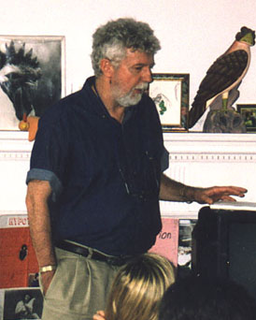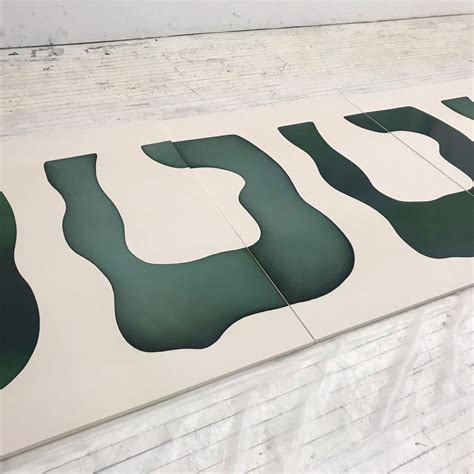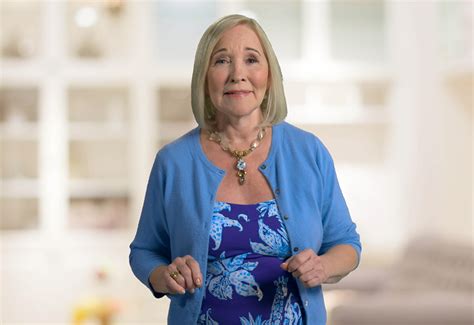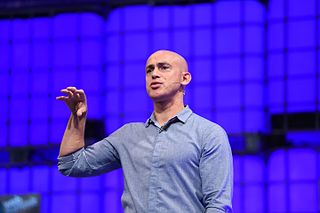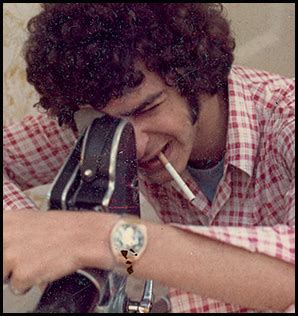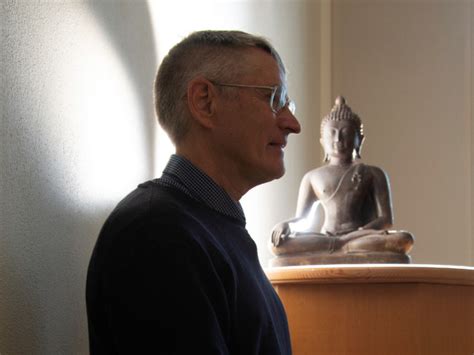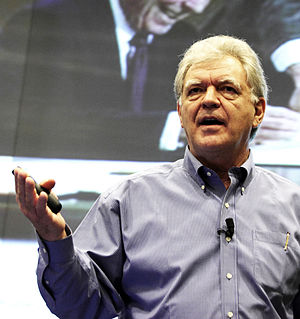Top 294 Mindfulness Quotes & Sayings - Page 5
Explore popular Mindfulness quotes.
Last updated on April 19, 2025.
So too, monks, I saw the ancient path, the ancient road traveled by the Perfectly Enlightened Ones of the past. And what is that ancient path, that ancient road? It is just this Noble Eightfold Path; that is, right view, right intention, right speech, right action, right livelihood, right effort, right mindfulness, right concentration.
The importance of the development of the emotional body is hardly recognized today. We are pretty much left to our own devices to come to full adulthood, whether man or woman. Our elders may have become so denatured themselves from a lack of such nurturance that there is no longer a collective knowledge of how to guide the awakening emotional vitality and authenticity of our young people, our children. Mindfulness may contribute to a reawakening of this ancient wisdom in ourselves and in others.
Anger is like a storm rising up from the bottom of your consciousness. When you feel it coming, turn your focus to your breath. Breathe in deeply to bring your mind home to your body. Then look at, or think of, the person triggering this emotion: with mindfulness, you can see that they are unhappy and suffering. You can see their wrong perceptions. You'll feel motivated by a desire to say or do something to help the other person suffer less. This means compassionate energy has been born in your heart. And when compassion appears, anger is deleted.
The whole idea of mindfulness is all about having a second-level monitoring of your thoughts and being able to recognize them as being negative or harmful before they become a part of your being, before they become some kind of action like writing an angry letter to someone or speaking too strongly to someone.
Mindfulness is the ability to be aware, to note, to notice. When we apply that to our thoughts and mental habits, we bring a clarity of awareness in seeing what's just an ordinary thought and what's a judging thought that's pejorative or putting us down in some way. So, we first bring that lens of awareness, and then we can do all kinds of different strategies. We can inquire.
Feelings, whether of compassion or irritation, should be welcomed, recognized, and treated on an absolutely equal basis; because both are ourselves. The tangerine I am eating is me. The mustard greens I am planting are me. I plant with all my heart and mind. I clean this teapot with the kind of attention I would have were I giving the baby Buddha or Jesus a bath. Nothing should be treated more carefully than anything else. In mindfulness, compassion, irritation, mustard green plant, and teapot are all sacred.
Breathe in deeply to bring your mind home to your body. Then look at, or think of, the person triggering this emotion: With mindfulness, you can see that she is unhappy, that she is suffering. You can see her wrong perceptions. You can see that she is not beautiful when she says things that are unkind.
People who spend a great deal of time in their gardens attest to the natural mindfulness that gardening requires. What could be more naturally mindful than weeding? It requires a great deal of sustained attention. Weeds need to be taken up with care: Pull too hard, and the weed breaks in your fingers, leaving the root to grow and spread. Different weeds need different techniques and, sometimes, tools. When we weed our gardens, we have to pay attention to where and how we walk and bend. Move too far in one direction or another, and we'll squash growing things.
Generosity is another quality which, like patience, letting go, non-judging, and trust, provides a solid foundation for mindfulness practice. You might experiment with using the cultivation of generosity as a vehicle for deep self-observation and inquiry as well as an exercise in giving. A good place to start is with yourself. See if you can give yourself gifts that may be true blessings, such as self-acceptance, or some time each day with no purpose. Practice feeling deserving enough to accept these gifts without obligation-to simply receive from yourself, and from the universe.
To dwell in the here and now does not mean you never think about the past or responsibly plan for the future. The idea is simply not to allow yourself to get lost in regrets about the past or worries about the future. If you are firmly grounded in the present moment, the past can be an object of inquiry, the object of your mindfulness and concentration. You can attain many insights by looking into the past. But you are still grounded in the present moment.
Our role as gardeners is to choose, plant and tend the best seeds within the garden of our consciousness. Learning to look deeply at our consciousness is our greatest gift and our greatest need, for there lie the seeds of suffering and of love, the very roots of our being, of who we are. Mindfulness...is the guide and the practice by which we learn how to use the seeds of suffering to nourish the seeds of love.
When virtuous mental attitudes, like mindfulness, respect, and compassion, are invoked to justify nonvirtuous acts like hunting, fishing, and eating animal products, the mental attitudes are insincere. They are self-deceptions that we create to justify habits that in our hearts we know are wrong, but to which we have become attached.
When we let go of wanting something else to happen in this moment, we are taking a profound step toward being able to encounter what is here now. If we hope to go anywhere or develop ourselves in any way, we can only step from where we are standing. If we don't really know where we are standing—a knowing that comes directly from the cultivation of mindfulness—we may only go in circles, for all our efforts and expectations. So, in meditation practice, the best way to get somewhere is to let go of trying to get anywhere at all.
The measure of our mindfulness, the touchstone for sanity in this society, is our level of productivity, our attention to responsibility, our ability to plain and simple hold down a job. If you're still at the point when you're even just barely going through the motions--showing up at work, paying the bills--you are still okay or okay enough. A desire not to acknowledge sadness in ourselves or those close to us--better known these days as denial, is such a strong urge that plenty of people prefer to think that until you are actually flying out of a window, you don't have a problem.
The ideas of non-duality and mindfulness that I address in my works are things I try to practice in my daily life. Both in and outside of the studio, it's about trying to be fully present, to accept things as they are, to frame your experience in terms of a continually unfolding moment. I feel like that's directly reflected in my formal approach: utilizing a literal use of materials, emphasizing the more ephemeral aspects of the artistic process, and so on.
I'm not prescribing non-doing as a universal response to our problems. Sometimes, something obviously needs to be done. And we retreat into a spiritual or meditative state that we fancy up by calling it mindfulness, but really it's an unhealthy detachment and a shrinking back from life. But culturally, it's much more common to be trapped in habits of reaction, whether on a systemic level or on a personal level. That's where the non-doing comes in, which is something that we don't really have room for. I think that it's something we need to embrace as part of the creative process.
You honor your writing space by recovering, if you are an addict. You honor your writing space by becoming an anxiety expert, a real pro at mindfulness and personal calming. You honor your writing space by affirming that you matter, that your writing life matters, and that your current writing project matters. You honor your writing space by entering it with this mantra: “I am ready to work.” You enter, grow quiet, and vanish into your writing.
Another way to look at meditation is to view thinking itself as a waterfall, a cascading of thought. In cultivating mindfulness, we are going beyond or behind our thinking, much the way you might find a vantage point in a cave or depression in the rock behind a waterfall. We still see and hear the water, but we are out of the torrent.
Just as a mother would protect with her life her own son, her only son, so one should cultivate an unbounded mind towards all beings, and loving-kindness towards all the world. One should cultivate an unbounded mind, above and below and across, without obstruction, without enmity, without rivalry. Standing, or going, or seated, or lying down, as long as one is free from drowsiness, one should practice this mindfulness. This, they say, is the holy state here.
Do not pursue the past. Do not lose yourself in the future. The past no longer is. The future has not yet come. Looking deeply at life as it is. In the very here and now, the practitioner dwells in stability and freedom. We must be diligent today. To wait until tomorrow is too late. Death comes unexpectedly. How can we bargain with it? The sage calls a person who knows how to dwell in mindfulness night and day, 'one who knows the better way to live alone.'
Mindfulness is being aware of yourself, others, and your surroundings in the moment. When consciously and kindly focusing awareness on life as it unfolds minute by precious minute, you are better able to savor each experience. Also, being closely attentive gives you the opportunity to change unwise or painful feelings and responses quickly. In fact, being truly present in a mindful way is an excellent stress reducer and, because of that, can be seen as consciousness conditioning, a strengthening workout for body, mind, heart, and spirit.
You have to remember one life, one death–this one! To enter fully the day, the hour, the moment whether it appears as life or death, whether we catch it on the inbreath or outbreath, requires only a moment, this moment. And along with it all the mindfulness we can muster, and each stage of our ongoing birth, and the confident joy of our inherent luminosity. (24)
The mistake we make is that when we're feeling another person is not treating us in the way that makes us feel secure and loved, we fixate our attention on that person and what's wrong with them. We also fixate on what's wrong with us. Instead, we can bring forward two wings of awareness: the wing of mindfulness (noticing what's going on inside us) and the wing of kindness (compassion to what's going on inside us).
There are some surprising payoffs with only a few minutes' practice, like eliminating the loss of concentration that multitasking usually brings. Short daily mindfulness practice in beginners also improves memory, to the point that a group of students who volunteered for a study got significantly better scores on their graduate school entrance exams.
It is because of that balanced relationship to the moment that mindfulness serves as the platform for insight... if we feel an emotion, for example, and struggle against it right away, there is not going to be a lot of learning going on. In the same way, if we are swamped by that emotion, overcome by it, there won't be enough space for there to be learning or insight.
The trick is to keep exploring and not bail out, even when we find out that something is not what we thought. That's what we're going to discover again and again and again. Nothing is what we thought. I can say that with great confidence. Emptiness is not what we thought. Neither is mindfulness or fear. Compassion––not what we thought. Love. Buddha nature. Courage. These are code words for things we don't know in our minds, but any of us could experience them. These are words that point to what life really is when we let things fall apart and let ourselves be nailed to the present moment.
You are in front of your brother, but your mind is on many other things, so you don’t really see your brother. Maybe he is having some trouble, but you don’t see it, not even when you share the same room. But mindfulness brings you there, to the present, and then you see. Train yourself all day long to bring your mind to your body and to be present with your food, your friends, your work, everything, because the more you concentrate, the deeper you will see.
Mindfulness is about finding ways to slow down and pay attention to the present moment-which improves performance and reduces stress. It’s about having the time and space to attend to what’s right in front of us, even though many other forces are trying to keep us stuck in the past or inviting us to fantasize or worry about the future. It’s about a natural quality each of us possesses, and which we can further develop in just a few minutes a day.
Mindfulness is the key to everything, and this is especially true when one approaches the cultural portal known as "middle age." This is when people mindlessly believe that it's normal to get diseases and start to fall apart. But the truth is that midlife is the time when people need to wake up and be far more mindful about their everyday habits and thinking patterns.
We who have touched war have a duty to bring the truth about war to those who have not had a direct experience of it. We are the light at the tip of the candle. It is really hot, but it has the power of shining and illuminating. If we practice mindfulness, we will know how to look deeply into the nature of war and, with our insight, wake people up so that together we can avoid repeating the same horrors again and again.
There are those who give with joy, and that joy is their reward. And there are those who give with pain, and that pain is their baptism. And there are those who give and know not pain in giving, nor do they seek joy, nor give with mindfulness of virtue; They give as in yonder valley the myrtle breathes its fragrance into space. Through the hands of such as these God speaks, and from behind their eyes he smiles upon the earth.
We can’t change every little thing that happens to us in life, but we can change the way that we experience it. That’s the potential of meditation, of mindfulness. You don’t have to burn any incense, and you definitely don’t have to sit on the floor. All you need to do is to take 10 mins out a day to step back; to familiarise yourself with the present moment so that you get to experience a greater sense of focus, calm and clarity in your life.
We have limited time in our life, therefore we should try to teach ourselves, not to teach others. We should conquer ourselves, rather than conquer others. Whether coming or going, standing, sitting or lying down, our mind should be focused in this way. If we practise like this and develop mindfulness continuously, wisdom arises quickly and this is a fast way of practice.
The organic gardener does not think of throwing away the garbage. She knows that she needs the garbage. She is capable of transforming the garbage into compost, so that the compost can turn into lettuce, cucumber, radishes, and flowers again...With the energy of mindfulness, you can look into the garbage and say: I am not afraid. I am capable of transforming the garbage back into love.
The problem that faces us is the problem of awakening. What we lack is not an ideology or doctrine that will save the world. What we lack is mindfulness of what we are, of what our situation really is. We need to wake up in order to rediscover our human sovereignty. We are riding a horse that is running out of control. The way of salvation is a new culture in which human beings are encouraged to rediscover their deepest nature.
When you have learned, through discipline, to simplify your life, and so practiced the mindfulness of meditation, and through it loosened the hold of aggression, clinging, and negativity on your whole being, the wisdom of insight can slowly dawn. And in the all-revealing clarity of its sunlight, this insight can show you, distinctly and directly, both the subtlest workings of your own mind and the nature of reality.
Our experience of reality is the result of the magical alchemy of the creation of our thoughts, our beliefs, our decisions, our attitudes, our feelings. All of these are, for the most part, unconscious. Mindfulness allows us to watch these thoughts and choices and decisions without being triggered and having to take action and give meaning.
Self-discipline, although difficult, and not always easy while combating
negative emotions, should be a defensive measure. At least we will be able to prevent the advent of negative conduct dominated by negative emotion. That is 'shila', or moral ethics. Once we develop this by familiarizing ourselves with it, along with mindfulness and conscientiousness, eventually that pattern and way of life will become a part of our own life.
Creativity of all kinds focuses your mind, engages your imagination, and feeds your soul. Being creative can also facilitate understanding and encourage healing. Creativity is mindfulness in motion-intuitive, artistic motion. Creative moments and activities give you a boost and help you feel energized and good about yourself.
The point is not how long you meditate; the point is whether the practice actually brings you to a certain state of mindfulness and presence, where you are a little open and able to connect with your heart essence. And five minutes of wakeful sitting practice is of far greater value than twenty minutes of dozing!
Mindfulness can create a foundation for emotional bonding that allows you to be fully present and authentic during dialogues or a discussion. A mindful approach to entering difficult conversations keeps both parties out of the heat of emotions and able to explore the needs, wants and interests on both sides. Judgement is suspended and, with a strong bond, the mind is able to focus on and look for the mutual benefit of the common goal.
Our joy, peace and happiness depend very much on our practice of recognizing and transforming habit energies. There are positive habit energies that we have to cultivate, and negative habit energies that we have to recognize, embrace and transform. The energy with which we do these things is mindfulness.
You need the practice of mindfulness to bring your mind back to the body and establish yourself in the moment. If you are fully present, you need only make a step or take a breath in order to enter the kingdom of God. And once you have the kingdom, you don't need to run after objects of your craving, like power, fame, sensual pleasure, and so on. Peace is possible. Happiness is possible.
Suddenly it makes sense again. In no haze of mindfulness, staring down at this snow-covered quilt of America, I am the stars exploding. Voice shot down to hell, half sick, half recovered, alive and well and ready. The unknown for now will remain as such and in this moment that feeling is not one of suspension. It is the hopeful unknown. Reaching into the future could only be good now as the past is wrapping itself in ribbons and pleasant packing paper, rarely to be revisited.









